Gas Heat to replace Electric Baseboards
mccoy8382
6 years ago
Featured Answer
Comments (13)
Related Discussions
Replacing baseboard heat
Comments (3)I agree that baseboard heat is optimal, especially if the baseboards are hot water radiators. They are highly efficient and provide consistent heat. Retrofitting ductwork for central AC involves a lot of idiosyncratic technical issues. You will need a competent contractor to look over the place and give you an opinion on how-to and the cost....See Moreelectric heat vs. LP gas stove
Comments (1)theblaiser While probably not telling you anything you don't already know, you have two of the most expensive forms of fuel for winter heating. I am attaching a fuel comparison calculator which will give you a close estimate. You will need the efficiency on your LP gas stove/inserts. Of course the baseboard electric heat has no efficiency. Just plug in the electric cost and the calculator will spit out a cost for baseboard heat. It appears LP is more expensive using an average electric cost of $.115/kw. A high eff heat pump would save you some significant $$$. Hope this is helpful. IMO Here is a link that might be useful: Fuel Comparison Calculator...See MoreElectric baseboard heat won't shut off
Comments (6)I pretty much can do what I like with the apartment with some restrictions as my step-dad and mom own the house with an in-law apartment. I do know an electrician. I was hoping it was something like replacing the thermostat unit thinking something internal was wrong. As my boyfriend and step-dad can do small electrical work. Looks like I'll have to call my friend....See MoreReplace electric baseboard heaters with wall heaters?
Comments (2)I had a cabin with electric baseboard heaters. The heaters were located under windows. If I did not use the heaters in the winter, the windows would get condensation. Which wall heater, a gas wall heater would cost $2-3k with installation....See Moremccoy8382
6 years agomike_home
6 years agoBruce in Northern Virginia
6 years agoionized_gw
6 years agoionized_gw
6 years agomike_home
6 years agofsq4cw
6 years agomike_home
6 years agofsq4cw
6 years agoionized_gw
6 years agolast modified: 6 years agomike_home
6 years agolast modified: 6 years ago
Related Stories
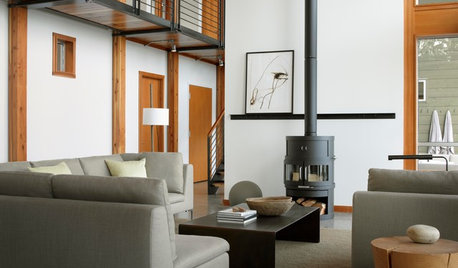
REMODELING GUIDESClean-Burning Woodstoves Ignite a Greener Heating Trend
No need to rely on oil or gas to heat your home — new woodstove designs burn cleanly and are beautiful to boot
Full Story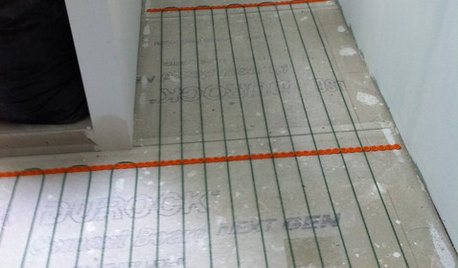
BATHROOM DESIGNWarm Up Your Bathroom With Heated Floors
If your bathroom floor is leaving you cold, try warming up to an electric heating system
Full Story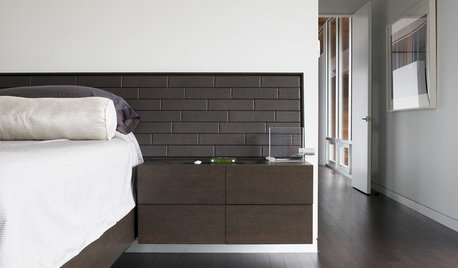
FLOORSFloors Warm Up to Radiant Heat
Toasty toes and money saved are just two benefits of radiant heat under your concrete, wood or tile floors
Full Story
GREAT HOME PROJECTSHow to Add a Radiant Heat System
Enjoy comfy, consistent temperatures and maybe even energy savings with hydronic heating and cooling
Full Story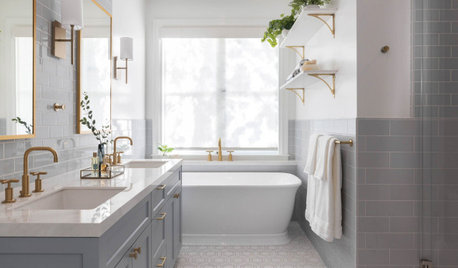
FLOORSWhat to Ask When Considering Heated Floors
These questions can help you decide if radiant floor heating is right for you — and what your options are
Full Story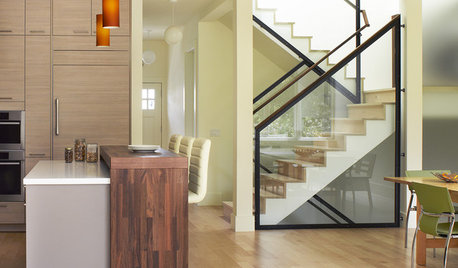
FLOORSIs Radiant Heating or Cooling Right for You?
Questions to ask before you go for one of these temperature systems in your floors or walls (yes, walls)
Full Story
GREEN BUILDINGInsulation Basics: Heat, R-Value and the Building Envelope
Learn how heat moves through a home and the materials that can stop it, to make sure your insulation is as effective as you think
Full Story
MY HOUZZMy Houzz: Renovation Brings Energy Efficiency to a Netherlands Home
A family of 5 tackles a potentially large gas and electric bill in a 19th-century house
Full Story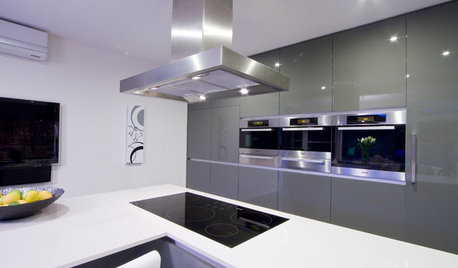
KITCHEN APPLIANCESFind the Right Cooktop for Your Kitchen
For a kitchen setup with sizzle, deciding between gas and electric is only the first hurdle. This guide can help
Full Story
LIVING ROOMSHow to Convert Your Wood-Burning Fireplace
Learn about inserts and other options for switching your fireplace from wood to gas or electric
Full Story


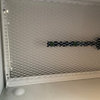
mike_home